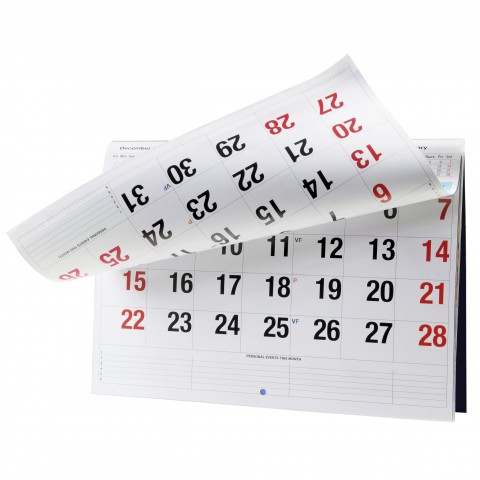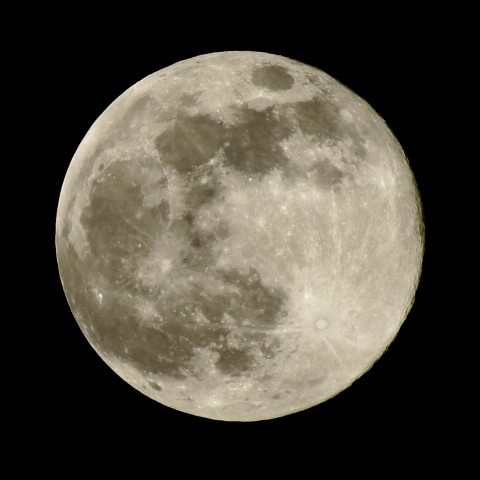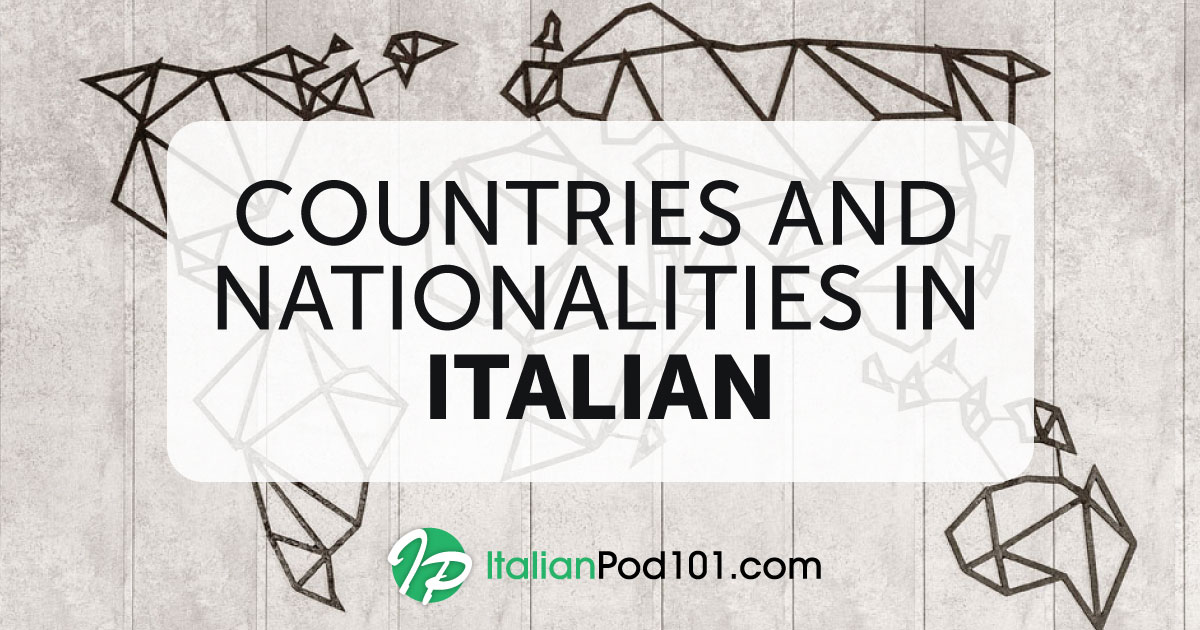Do you need to plan a date with an Italian friend? Or do you simply need to confirm the day of your next Italian lesson? Maybe you’re reading an important letter or document, but don’t know how to read dates in Italian. You’ll need to be able to talk about time and dates in Italian to communicate on a daily basis.
Days, weeks, months, years. They go so fast…but don’t worry! You’ll learn how to say the days of the week in Italian, the months of the year, and all the other tricks of the Italian calendar with this simple guide on how to talk about dates in Italian. You’ll be saying dates in Italian and making appointments before you know it!
Table of Contents
- How to Write and Read Dates in Italian
- How to Say the Years in Italian
- How to Say the Months in Italian
- How to Say the Days
- How to Say the Days of the Week
- What Would You Say to Fix the Date of an Appointment?
- Must-Know Phrases to Talk about Dates
- Italian Dates You Should Know
- You Don’t Need to Study Einstein…
- Conclusion: How ItalianPod101 Can Help You Master Italian
1. How to Write and Read Dates in Italian
The first step is learning how to write dates in Italian.
Dates in Italian follow the same order that they do in all European countries: giorno-mese-anno (or “day-month-year” in English). In other words, you start with the day, then the month, and you put the year at the end. So, if you’re writing dates in Italian in a letter or filling out a form on February 18, dates in Italian format will look like this:
18/02/2019.
If, instead of writing, you need to know how to say dates in Italian, you read it by adding the article: Oggi è il 18 febbraio 2019 (duemila diciannove) which translates to “Today is the 18th of February, 2019.”
Knowing how to say months and dates in Italian comes in handy when you’re asked your date of birth. Do you know how to say that?
Sono nato/a il 3 maggio del 1983.
“I was born May 3, 1983.”
Another way of saying it, of course, would be:
Il mio compleanno è il 3 maggio.
“My birthday is May 3.”
Once your birthday comes around, be ready to receive Tanti auguri! from your friends (literally “Many wishes” in English) or Buon compleanno! (or “Happy birthday!” in English).
Tanti auguri, nonna! (Happy birthday, granma!)
2. How to Say the Years in Italian
The next important step in learning how to express dates in Italian is the years. Talking about the years in Italian can be a bit challenging as they’re very big numbers. These are the basics:
In Italian, you have to read the thousands first (1000 = mille), then the hundreds (900 = novecento) and finally tens and units (99 = novantanove).
Or, for a more recent date: duemila diciannove (2019). In this case, there are no hundreds, so we skip directly to the tens and units.
Do you want to know more (big and small) about numbers? Check out this comprehensive article!
3. How to Say the Months in Italian

To help you out with your agenda and your birthday schedule, here’s a list of all Italian months. As you can see, the names of Italian months aren’t too different from the English ones.
| I mesi in Italiano | Months in English |
|---|---|
| gennaio | January |
| febbraio | February |
| marzo | March |
| aprile | April |
| maggio | May |
| giugno | June |
| luglio | July |
| agosto | August |
| settembre | September |
| ottobre | October |
| novembre | November |
| dicembre | December |
Notice how the names of the months in Italian don’t need to be capitalized, unless they’re at the beginning of a sentence. As in:
- Dicembre è un mese freddo, mentre agosto è un mese caldo.
“December is a cold month, while August is a hot month.”
You might need to practice the pronunciation of some of the Italian months. Giugno (June) and luglio (July) are the two most difficult ones, as they contain two digraphs that you find only in Italian: gl and gn. You can practice those the next time you plan a summer trip to the Italian coastline, as those are the perfect months to enjoy the beaches!
Una bella giornata di giugno al mare (A nice June day at the beach)
And if you’re writing down the months in Italian, don’t forget the doppie, meaning “double consonants,” in gennaio, febbraio, maggio, settembre, and ottobre (January, February, May, September, and October). (link to pronunciation)
Maybe it won’t be this year, but every four years something very special happens: we have an anno bisestile (or “a leap year” in English). This is when February has 29 days instead of 28.
4. How to Say the Days
In Italian, when we say the days of the month, we always use the cardinal number, preceded by the correct masculine, singular, definite article. For example:
- Oggi è il 18 (diciotto) febbraio.
“Today is February 18.”
The only exception is the first day of the month, when we can also use the ordinal number for “one.”
- Il primo maggio è festa. or L’uno maggio è festa.
“May first is a holiday.”
Notice how you can say either il primo giugno or il primo di giugno (both meaning “June 1” in English).
All other dates of the month in Italian follow the general rule that they’re written and pronounced as cardinal numbers. So, here they go:
| l’uno (il primo) | 1 |
| il due | 2 |
| il tre | 3 |
| il quattro | 4 |
| il cinque | 5 |
| il sei | 6 |
| il sette | 7 |
| l’otto | 8 |
| il nove | 9 |
| il dieci | 10 |
| l’undici | 11 |
| il dodici | 12 |
| il tredici | 13 |
| il quattordici | 14 |
| il quindici | 15 |
| il sedici | 16 |
| il diciassette | 17 |
| il diciotto | 18 |
| il diciannove | 19 |
| il venti | 20 |
| il ventuno | 21 |
| il ventidue | 22 |
| il ventitré | 23 |
| il ventiquattro | 24 |
| il venticinque | 25 |
| il ventisei | 26 |
| il ventisette | 27 |
| il ventotto | 28 |
| il ventinove | 29 |
| il trenta | 30 |
| il trentuno | 31 |
If you’re not sure how many days are in a specific month, here’s a traditional Italian nursery rhyme that you can learn to help you memorize the days of every month.
Trenta giorni ha novembre
con april, giugno e settembre.
Di ventotto ce n’è uno,
tutti gli altri ne han trentuno.
“Thirty days has November
With April, June, and September.
Twenty-eight there is just one,
All the others have thirty-one.”
Do you want to try it?
5. How to Say the Days of the Week
Now that you have a good idea of how to say the dates in Italian, you should know how to talk about the days of the week in Italian. Like the names of the months, these aren’t capitalized. Here’s a list of the days of the week in Italian:
| lunedì | Monday |
| martedì | Tuesday |
| mercoledì | Wednesday |
| giovedì | Thursday |
| venerdì | Friday |
| sabato | Saturday |
| domenica | Sunday |
Don’t forget the accent on the final ì of the first five days of the week. The ending –dì means “day” (from the Latin word for “day,” dies), and you can still find it in poetry or in certain words such as buondì or mezzodì, instead of buongiorno (good morning) or mezzogiorno (noon).
Monday through Friday are giorni lavorativi (or “weekdays” in English) because they’re the days of the week “when people go to work.” Remember that like all the other Italian words that end with an accent, they’re invariable, meaning that they don’t change in the plural. However, sabato and domenica, which are giorni feriali, meaning “weekends,” can have regular plurals (sabati, domeniche).
For example:
- Tutti i sabati e tutte le domeniche dormo fino a tardi.
“All Saturdays and Sundays I sleep late.”
Lunedì è il giorno della luna. (Monday is the day of the moon.)
Like all romance languages, which are the languages derived from Latin, the names of the days of the week in Italian originate from the names of the planets, which in turn come from the names of the ancient gods. This was a system devised by the Greeks and then perfected by the Romans. The good news is that once you learn the days of the week in Italian, you’ll easily master the skies too:
| Day of the Week | Planet/God | English equivalent |
|---|---|---|
| Lunedì | Luna | Moon |
| Martedì | Marte | Mars |
| Mercoledì | Mercurio | Mercury |
| Giovedì | Giove | Jupiter |
| Venerdì | Venere | Venus |
Sabato (Saturday) and domenica (Sunday) have a different religious origin, as sabato comes from the Hebrew Sabbath—the day of rest—and domenica means “Day of the Lord.”
6. What Would You Say to Fix the Date of an Appointment?
Now that you’ve mastered how to say the dates, the days, the months, and the years in Italian, it’s time to make some plans! Nothing is more fun than meeting with new and old friends, and organizing a night out or a weekend away.
Ci vediamo sabato per un caffè? (Shall we meet on Saturday for a coffee?)
Here are some simple phrases to start doing just that.
| Cosa fai il primo marzo? | “What are you doing on March first?” |
| Hai programmi per domenica? | “Do you have plans for Sunday?” |
| Sei libero/a questo fine settimana? | “Are you free this weekend?” |
| Ci vediamo il dodici alle tre. | “Let’s meet on the 12th at three.” |
7. Must-Know Phrases to Talk about Dates
If you’re traveling or are on vacation, it’s very easy to lose track of the time. So it’s important to know how to ask “What day is today?” in Italian. There are actually two different ways to tell today’s date:
Oggi è il 25.
Oggi ne abbiamo 25.
Both sentences mean “Today’s the 25th.”
If you want to ask “What day is today?” you can either ask Che giorno è oggi? or Quanti ne abbiamo oggi? But be aware that if you ask the first question, you might be answered: è martedì or è il 15 (meaning “It’s Tuesday,” or “It’s the 15th,” respectively). If you ask the second question, the answer will be more precise, and you’ll be told the exact day of the month: il 15 (meaning “It’s the 15th” in English).
And do you know what ne stands for in the sentence Quanti ne abbiamo? It substitutes “of/about + this, these, that, those,” and refers to the number of days that have passed in a month.
Other useful phrases to ask about dates in Italian are:
| Quando/Che giorno inizia il corso? | “When/What day does the course start?” |
| Quando/Che giorno finisce il corso? | “When/What day does the course end?” |
| Di che giorno cade Pasqua? | “What day is Easter?” (Literally: “In what day does Easter fall?” translated) |
And if you want to know about somebody’s birthday, there are three different ways of asking “When is your birthday?”:
Quand’è il tuo compleanno?
Quando fai il compleanno?
Quando compi gli anni?
8. Italian Dates You Should Know
Natale (Christmas)
The most important (and best) Italian holidays are usually the ones related to family and food. So you don’t want to miss the opportunity to experience this next time you travel to Italy. To help you schedule your next trip, here are the dates you should always keep in mind:
- Quest’anno Pasqua cade il 15 aprile.
“This year, Easter is April 15th.” - Pasquetta, il lunedì dopo Pasqua, è un giorno di festa in Italia.
“Pasquetta, the Monday after Easter, is a holiday in Italy.” - Il Venerdì Santo si mangiano pesce e verdure.
“On Good Friday, you eat fish and vegetables.” - Carnevale è sempre 40 giorni prima di Pasqua.
“Carnival is always 40 days before Easter.” - Natale è il 25 dicembre.
“Christmas is on December 25th.”
And to underline the importance of family gatherings for Christmas, Italians have created this popular saying: Natale con i tuoi, Pasqua con chi vuoi. This means: “Christmas with your family, Easter with whoever you want.”
There are also many other local holidays that are celebrated only in specific cities or villages. Usually, these are holidays celebrating the patron saint that protects the city.
9. You Don’t Need to Study Einstein…
… to know that time is relative to your point of view and to a particular moment in time. Talking about time often has to do with something that happened before or that will happen after a specific time.
So, especially when you need to set up an appointment, make plans, or talk about things that happened in the past, you need to learn a few more words about time.
Check out this sequence:
| -2 | -1 | 0 | +1 | +2 | |||||
| l’altro ieri | ieri | oggi | domani | dopodomani | |||||
| the day before yesterday | yesterday | today | tomorrow | the day after tomorrow |
With these words, you’ll be able to express concepts up to two days before or after today.
But what if you want to go beyond that? In this case, you’ll have to use fa (ago) or fra/tra (in). By the way, notice how tra and fra are absolutely synonyms!
- Tre giorni fa. “Three days ago.”
- Fra tre giorni. “In three days.”
The same works for weeks, months, years, etc.
- Sono tornata un mese fa. “I came back one month ago.”
- Vado in Italia fra due settimane. “I travel to Italy in two weeks.”
- Dove sarai tra 10 anni? “Where will you be in 10 years?”
Another relative term when we talk about time is la vigilia, which is, in general, the day that precedes an important event, such as a wedding, an important exam, a very big holiday, etc.
- La vigilia di Natale è il giorno che precede il Natale.
“Christmas Eve is the night before Christmas.” - Dormo sempre poco alla vigilia degli esami.
“I always get little sleep the day before the exams.” - La sposa è scappata alla vigilia delle nozze.
“The bride ran away the day before the wedding.”
10. Conclusion: How ItalianPod101 Can Help You Master Italian
Cosa fai oggi? (What is your plan today?)
If you plan to improve your Italian and to be able to travel, meet friends, and learn about an extraordinary country and culture, you’re in the right place. Keep improving and having fun with ItalianPod101!
We provide an array of learning tools for Italian learners at every level, from insightful blog posts like this one to free vocabulary lists so you can improve your language knowledge! For additional convenience, be sure to download our mobile apps to learn Italian anywhere, on your own time!
Learning a language isn’t easy, but your hard work and determination, combined with our constant support, ensures that you can master Italian before you know it!
Before you go, let’s practice. How are dates written in Italian? Write today’s date in the comments section. 😉



















